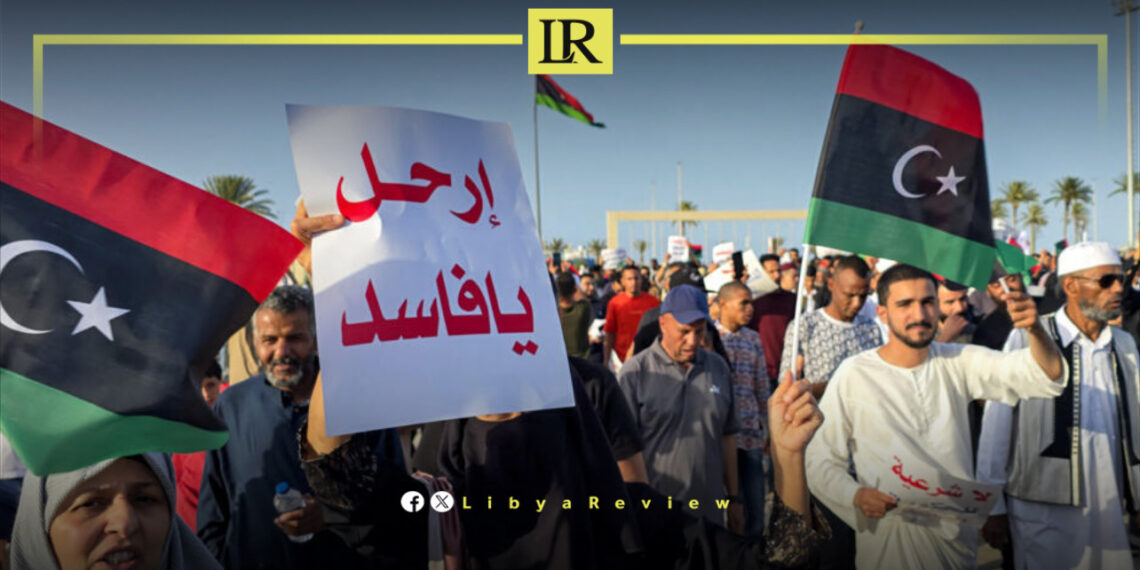Thousands of Libyans took to the streets of Tripoli on Friday evening in one of the largest protest waves the capital has seen in recent months, calling for the immediate resignation of Prime Minister Abdul Hamid Dbaiba and the formation of a unified transitional government.
Demonstrators gathered in Algeria Square and spread across key neighborhoods, echoing growing frustration with the government’s failure to lead the country out of crisis.
The protesters voiced deep discontent over deteriorating living conditions, corruption, and the prolonged delay of national elections. Many carried banners demanding political reform, economic accountability, and an end to what they described as a government unable to manage Libya’s transition or deliver basic public services.
The demonstrations were not limited to Tripoli. Large groups of protesters arrived from neighboring western cities, including Zawiya, Sabratha, and Ajilat, showing a regional swell of public anger.
Protesters chanted slogans denouncing Dbaiba’s leadership and called for the immediate implementation of long-delayed presidential and parliamentary elections.
Critics accuse Dbaiba of clinging to power beyond his interim mandate and using political maneuvering to delay elections initially scheduled for December 2021. The lack of a unified national roadmap, continued political infighting, and the persistent influence of armed groups have fueled public outrage.
Protesters vowed to continue mobilizing until their demands for a new, inclusive political leadership are met. Activists stressed that only a government committed to transparency, fair elections, and national reconciliation can restore stability and pave the way for Libya’s future.


